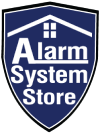01 Apr 2016
- 0 Comment(s)
Installing a home security system is not a question of why, but how. A recent market research report, “Home Security Solutions Market,” suggests that the global home security solutions market is likely to expand to $47.5 billion by 2020, nearly doubling from $28.3 billion in 2014. The report cites “the alarming crime rates on global basis and growing concerns of society toward security measures and concerns” behind the projection.
Getting an alarm system and other security equipment is a necessity. The Federal Bureau of Investigation (FBI) reported that about 8.27 million property crimes were recorded across the US in 2014. Before hitting the store, know what to consider when choosing a home security system. Here’s a seven-point guide for you.
Assess what you need  Photo Courtesy of StartupStockPhotos via Pixabay
Photo Courtesy of StartupStockPhotos via Pixabay
Before asking where to buy top brands of home alarm systems, you must know what you need first. A studio-type apartment doesn’t need security alarms as sophisticated as those recommended for large estates. Get a pen and paper, and draft a floor plan of your house. Mark the entrances that need to be secured such as doors and windows. You should also protect the interior with a second layer of sensors such as motion detectors. You may want to consider using surveillance cameras if that fits into your needs and budgets. Place a surveillance camera in areas where you keep valuables, entrances, and possibly on the exterior perimeter of your home as well. Also consider where you might want keypads.
Don’t neglect rarely-visited places such as the basement, attic and garage. Getting the big picture of your fortress will help you plan on the type of equipment you’d need. Feel free to seek professional advice from security experts if necessary.
Know the price
In 2014, Americans incurred an estimated of $14.3 billion in losses in 2014. You can have an intricate home security system, complete with real-time video monitoring or a simple security alarms below $30. Quality can come with a price: you get what you pay for. Also consider how you’re being charged. You can go for cheaper security systems that charge little up front, but bills larger monitoring fees with a long-term contract as a way to finance the equipment. You may also choose DIY systems that can cost more upfront but charges less for monthly monitoring. These are generally the best deal in overall cost, but you may need to spend a little extra time to not only install the system but to educate yourself. Fortunately, there are some great resources and companies online to help demystify the process for you.
Luckily, you don’t have to hop from one store to another to compare prices. Check out free information online on various security systems at the best price.

Professionally installed or DIY? Photo Courtesy of jackmac34 via Pixabay
One of the important considerations before buying a home security system is the installation. You don’t need to be a handyman to choose DIY home alarm systems. In fact, many equipment such as wireless cameras and motion sensors are designed for easy installation. DIY can help you save money. However, there are instances when it’s advisable to call a professional installer such as when a system specifically requires it. This will ensure that your home security system is installed correctly. You will be briefed on how to use your equipment and can ask for suggestions on how to boost your home safety. While having a professional install your system has some benefits, these all come with a usually hefty fee.
Beyond intrusion security
Home alarm systems should be a staple in every abode. Although its primary purpose is to alert homeowners during an attempted intrusion, modern alarm systems can be used for many other things as well. You may install water sensors in your basement to detect leaking pipes and flooding. Get a smoke detector to protect your home and your family from fires. The National Fire Protection Association (NFPA) warns about how the lack of smoke alarms causes more death—that is 37% of home fire deaths in the US.
There’s a wide array of new devices that can boost your security alarms. Check out wireless shock sensors, wireless sirens, touch alarm systems and other cutting-edge equipment.
The indispensable surveillance camera  Photo Courtesy of billyghawaii via Pixabay
Photo Courtesy of billyghawaii via Pixabay
According to market research firm Technavio, the global security cameras market will likely reach $7.59 billion by 2019. The perfect home security system is not without a surveillance camera. Thanks to technological advances, cameras are not only used for post-crime investigations but can be helpful in preventing untoward events. Many modern digital video cameras can capture clear, HD images of burglars and some can even be controlled remotely.
You don’t need to rely solely on locally recorded videos. Thanks to today’s IP cameras, you access your cameras from nearly anywhere. Additionally, there are various services that can integrate to your phone as well as your alarm system and even provide cloud based storage of your video feeds.
The essential lighting
Home automation is the core of home security trends this year. Technavio reported in a new study that revenues from the wireless home security system market is projected to reach $32 billion by 2019.
As criminals become smarter and more equipped, homeowners are advised to level up their home security system. Wireless alarm systems, remote monitoring, and home automation are in demand among first timers looking for home security systems.
Amid all the innovations, there are equipment that you cannot do without such as security lighting. This preventive and corrective tool is one of the vital home security system considerations. LED lights with motion sensors can help cut down your energy usage as these only turns on in the presence of motion. There are even options that can be integrated to security systems through ZWave that can react to the state of your system. Such as turning off or on depending if the system is armed or disarmed.
Reliable customer service  Photo Courtesy of PublicDomainPictures via Pixabay
Photo Courtesy of PublicDomainPictures via Pixabay
Even the best alarm system will need upgrades. If you’re using automated security devices, you’d need to install software updates as regularly as possible. This will block hackers from getting into your security system. Go online and browse tips for choosing home security systems. Most will provide reviews on security companies’ customer service. When issues arise, the last thing you’d need is a frustrating helpdesk.
Ensuring the safety of your family and your valuables is top priority. The cost of doing otherwise goes beyond the financial aspect. A home intrusion can cause lasting psychological damage to victims. Know tips in making your home a safer place by doing your own research and by speaking with security experts. Take advantage of the wide array of options available in the market.
